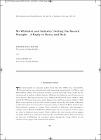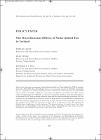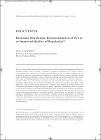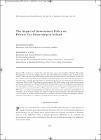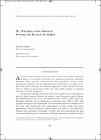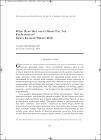Browsing The Economic and Social Review, Vol. 42, No. 2, Summer, 2011 by Date of Publication
Now showing items 1-6 of 6
-
Mr Whitaker and industry: setting the record straight ? a reply to Barry and Daly
(Economic & Social Studies, Dublin, 2011)The turnaround in economic policy from the late 1950s was remarkable. Protectionism was abandoned and exporting incentivised. As Barry and Daly (2011) admit, 'Conventional wisdom accords the bulk of the credit for ... -
The distributional effects of Value Added Tax in Ireland
(Economic & Social Studies, Dublin, 2011)In this paper we examine the distributional effects of Value Added Tax (VAT) in Ireland. Using the 2004/2005 Household Budget Survey, we assess the amount of VAT that households pay as a proportion of weekly disposable ... -
Economic regulation: recentralisation of power or improved quality of regulation?
(Economic & Social Studies, Dublin, 2011)The October 2009 Government Statement on Economic Regulation proposes a number of sensible reforms that are likely to improve regulatory performance in energy, airports, telecommunications, postal services and transport. ... -
The Impact of government policy on private car ownership in Ireland
(Economic & Social Studies, Dublin, 2011)We construct a model of the stock of private cars in the Republic of Ireland. The model distinguishes cars by fuel, engine size and age. The modelled car stock is built up from a long history of data on sales, and calibrated ... -
Mr. Whitaker and industry: setting the record straight
(Economic & Social Studies, Dublin, 2011)After 16 years of unbroken Fianna Fail rule, the first four of the five general elections of the period 1948-1963 saw sitting governments unseated. Economic policy pivoted: protectionism was abandoned; foreign direct ... -
What have we learnt about pay for performance?
(Economic & Social Studies, Dublin, 2011)Governance is a central concern of economics. In much of economic activity, relevant principals (firms, voters, government agencies, and so on) delegate decisions to agents who may not have the interests of those ...




